A detailed study by Ananya Singh and Gurpreet Kaur
New Delhi, Aug 23: Popularly known as the Switzerland of the Middle East, Lebanon has been hit by what is estimated to be, the worst economic crises of the century. The economy of the country has crashed, due to several factors. The main reason for the economic emergency is the Ponzi scam (which we will study in detail later). This has increased the rate of inflation (rise in the value of commodities). Currently $1 costs 20,000 Lebanese currency (LIRA) and the value of their money is declining fast.
The current situation:
Financial: Banks have shut down and numerous vaults have been sealed. People cannot retrieve their savings.
Electricity: Power outage for more than 20 hours makes it difficult for people to conduct their business as all tools need electricity to operate.
Pharmaceutical: The pharmaceutical sector is also facing a setback as the government has stopped importing medicines on a subsidized rate as it cannot afford it. This has led to a shortage of medicines in the market.
Fuel: The rise in the demand for fuel has caused a shortage of supply.
Water: Only 75% of the population has access to piped water supply for a few hours in a day. This water is not potable (drinkable). Most of the population depends on bottled water which is also in short supply.

The entire economic crisis stems from the Ponzi scam that the government and several state-funded- banks were involved with. The government and banks kept borrowing more and more money from foreign sources to settle older debts. In just 2 years, between 2018-20, their Gross Domestic Product (GDP) fell from $55bn to $25bn. According to the Ministry of Finance of Lebanon, in 2019 the Gross Public Debt amounted to $93.40 billion resulting in the national debt to GDP ratio of 174%.
What is a Ponzi Scam?
It is a money-making scheme in which the borrower pays back old lenders using the money of new lenders. For example, Mr. B wants to make some money. He asks some lenders to give him some money that he promises to repay with interest. Lenders X and Y agree. They lend him ₹1000 each for a month on 10% interest. At the end of the month, Mr. B must repay lenders X and Y ₹1100 each. Let’s assume that Mr. B did not earn enough money through work. To recompense, he now borrows more money from lenders C and D. They lend him ₹1100 each. He then uses this money to repay lenders X and Y. This is the Ponzi scam. It involves minimal involvement of the borrower’s money. They just transfer the money from the new lenders to the older lenders. However, this scheme fails to proceed in case of no new lenders. The borrower is then in debt of numerous people but does not have enough money to repay the debt.
Events leading up to the economic crisis:
Following the 1975-1990 civil war, successive governments collectively built up a huge amount of debt, resulting in an economic emergency in Lebanon. In 2018, the World Bank predicted an economic crisis in Lebanon as their economy had hit four major stumbling blocks.
- Public debt had reached such high levels that the crisis had become a question of when and notif.
- As a result of excessive lending (three quarters of its deposit), the banking industry had becomefunctionally bankrupt and increasingly illiquid (the condition of having insufficient cash to meetanticipated requirements).
- The economy had witnessed zero growth in over a decade, a development that had major socio-political implications.
- Finally, the country found itself in a political morass (when a government is unable to pass legislations due to a complicated situation/impending reasons) There was no President between 2014 and 2016. Cabinet formation was often and protractedly (lasting for a long time) delayed, andthe 2018 legislative elections were held only after a five-year wait.
The current Prime Minister and President of Lebanon are Saad Hariri and Michel Aoun. The cabinet of Saad Hariri resigned after the Beirut incident (improper handling of ammonium nitrate at the Beirut port led to an explosion on 4th August 2020). They are currently serving as the caretaker government until the new government forms.
Following the political turmoil, the capital inflows reduced. Due to the liquidity constraints (the ease with which an asset can be converted into cash), bankrupt banks were compelled to declare a bank vacation and impose severe restrictions on bank withdrawals. The creation of an illegal foreign exchange market caused the national currency, the lira, to drop drastically. Inflation increased, reducing people’s income, and purchasing power. The Covid-19 situation worsened the economic crisis. As a result of the aggregation of these factors, the economy imploded.
Consequences of the crisis:
Human capital is quickly degrading because of a significant outflow of the young and skilled. The loss of physical production capacity because of several company closures is also a source of concern. Four out of ten Lebaneseare unemployed, and more than half of the populationis now underprivileged.

